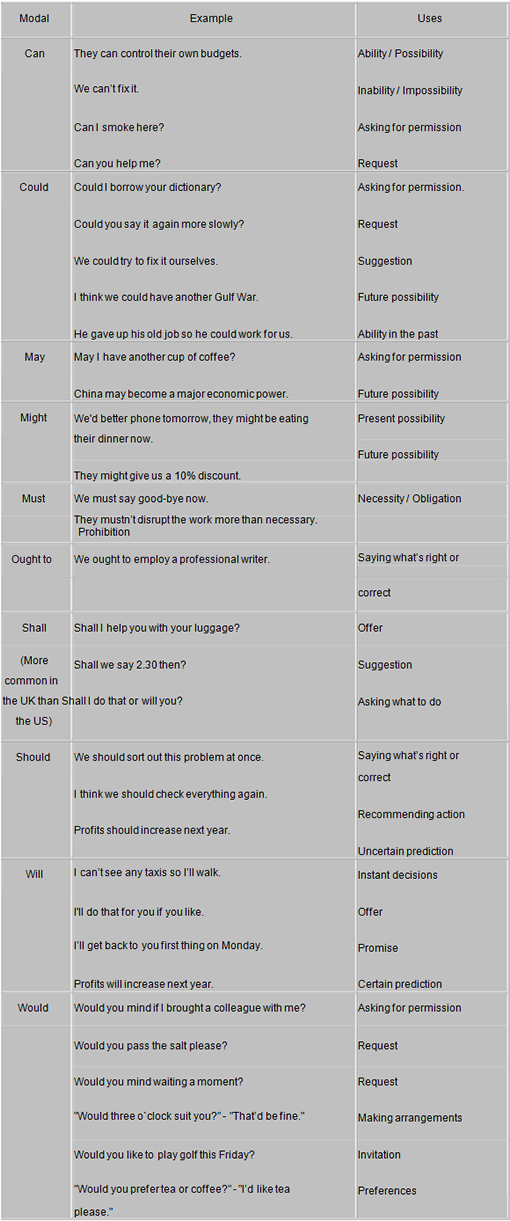Modal Verb: Can/Can not
All the auxiliary verbs except be, do and have are called modals. Unlike other auxiliary verbs modals only exist in their helping form; they cannot act alone as the main verb in a sentence.
Be, do, and have also differ from the other auxiliaries in that they can also serve as ordinary verbs in a given sentence.
The modal verbs are:
CAN / COULD / MAY / MIGHT / MUST / SHALL / SHOULD / OUGHT TO / WILL / WOULD

!Note The modal auxiliary verbs are always followed by the base form.
The verb used to, which is explained here, can also be used like a modal verb.

